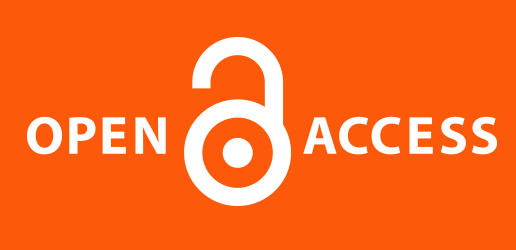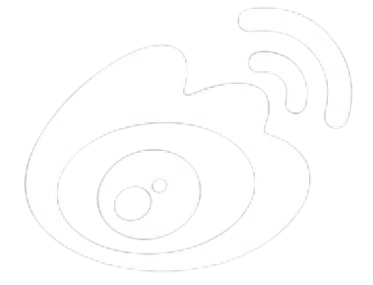
Exploration and thinking on the integration of music education and ideological and political course in higher vocational colleges under the background of new era
摘要
In the context of the new era, how to effectively integrate ideological and political education into music education at higher vocational colleges has become a key issue for improving students 'overall qualities and cultivating talents with both moral integrity and artistic excellence. This paper, titled "Exploration and Reflections on the Integration of Ideological and Political Education with Music Education at Higher Vocational Colleges in the New Era," systematically analyzes the current research status and trends both domestically and internationally, exploring the practical significance and theoretical value of this integration. The study shows that by mining ideological and political elements from music textbooks, adopting diverse teaching methods, and enhancing teachers' ideological and political literacy and teaching skills, the deep integration of the two can be achieved. This paper not only proposes innovative measures such as building new educational concepts and developing teaching resources with contemporary characteristics but also discusses in detail the challenges that may arise during the integration process and corresponding solutions. The research aims to provide theoretical foundations and practical guidelines for promoting the close integration of music education and ideological and political education in higher vocational schools, thereby enhancing students' comprehensive progress and their sense of social responsibility.
Introduction
In the context of the new era, after the release of the "Guidelines for the Construction of Ideological and Political Education in Higher Education Courses," the core issue in higher education has shifted to integratingideological and political education into course instruction. As a base for cultivating high-quality technical and skilled talents, higher vocational colleges play a significant role in achieving deep integration between ideological and political education and specialized courses. Music education is crucial in the curriculum system of higher vocational colleges, not only enhancing students' aesthetic appreciation but also serving an ideological and political educational function. However, there is currently a lack of research on the integration of ideological and political education with music education both domestically and internationally, and practical challenges arise in coordinating the transmission of music knowledge with ideological and political education.Therefore, exploring effective pathways for the integration of music education and ideological and political education in higher vocational colleges is a necessary step to respond to policy calls and promote the high-quality development of vocational education.
1 Practical significance and theoretical significance
1.1 Practical significance
1.1.1 Implement the fundamental task of cultivating virtue and fostering people
In the context of the new era, the core task of education is to cultivate well-rounded socialist builders and successors who excel in moral, intellectual, physical, aesthetic, and labor skills. Integrating ideological and political education with music teaching is an efficient way to achieve this goal. Music, as an art form that expresses emotions, possesses unique appeal and influence. It can help students establish correct worldviews, outlooks on life, and values. By incorporating elements of patriotism and collectivism into music education, not only can students' national pride and sense of social responsibility be enhanced, but they can also more effectively practice the core socialist values.
1.1.2 Promoting high-quality development of vocational education
The "Proposal on Promoting High-Quality Development of Modern Vocational Education" clearly states the need to strengthen ideological and moral education in vocational schools, promoting a comprehensive reform in the field of vocational education. In higher vocational colleges, music education, as an essential component of humanistic literacy, can enrich the connotations of vocational education and enhance educational quality through its deep integration with course-based ideological and political education[1].
This combination not only helps to improve students' professional skills, but also promotes their overall quality growth, and cultivates highly skilled technical talents with excellent professional ethics and professional cultivation, which meets the needs of national economic and social development for compound talents[2].
1.1.3 Promote the all-round development of students
In accordance with the guiding principles of the National Medium-and Long-Term Education Reform and Development Plan (2010-2020), we are committed to comprehensively promoting and enhancing the quality of education in all aspects, including moral, intellectual, physical, and aesthetic education. Music education, at its core, is an education of beauty, capable of awakening students' creativity and imagination, and elevating their aesthetic standards.
When ideological and political education and music education are integrated, their role is not only reflected in the transmission of music knowledge, but also in guiding students to pay attention to social hot topics, cultivating their critical thinking ability and the ability to solve practical problems, so as to promote students to achieve all-round development.
1.2 Theoretical significance
1.2.1 Expand the theoretical scope of ideological and political education
Incorporating music teaching into the research field of ideological and political education in courses will help to further enrich and perfect the theoretical system of ideological and political education in courses. In the past, ideological and political education in courses was more focused on liberal arts or social science courses, while music education provides a new perspective and platform for ideological and political education in courses.
By studying how to integrate ideological and political elements into music teaching, we can not only broaden the application scope of ideological and political courses, but also inject new vitality into their theoretical development.
1.2.2 Deepen the theoretical connotation of music education
Exploring the potential value and mechanisms of music education in ideological and political education can help deepen the theoretical connotations of music education itself. For example, by conducting an in-depth analysis of the historical background, cultural significance, and emotional messages conveyed by musical works, students can gain a deeper understanding of the social functions of music and its impact on personal growth.
At the same time, this kind of inquiry also provides more teaching methods and tools for music education, such as situational teaching method, case analysis method, etc., which are not only applicable in music class, but also can be widely applied to other subject teaching activities.
1.2.3 Promote the integration of interdisciplinary theories
The integration of ideological and moral education theory and music education theory is helpful to enhance the communication and integration between different fields within the discipline of education. This can not only break through the boundary of disciplines, build a more open and inclusive academic atmosphere, but also give birth to some new theoretical achievements.
2. Main content and path
2.1 Theoretical discussion
2.1.1 The connotation and goal of ideological and political education in courses
The essence of integrating ideological and political education into all courses means incorporating elements of ideological and political education into the teaching activities of various courses, thereby achieving the fundamental goal of cultivating virtue and nurturing talent through professional course instruction. This is not solely the responsibility of ideological and political theory courses but a mission shared by all courses.
Objective: It aims to make students establish a sense of social responsibility, have innovative ideas and practical ability, and help students establish a correct outlook on life, world view and values.
2.1.2 The unique value of music education
Emotional transmission: Music, as a unique art form, has a unique function of conveying emotions. It can arouse the emotional resonance in the hearts of listeners, promote individual mental health, and thus promote a more harmonious society.
In terms of cultural inheritance: Music, as an important carrier and transmission channel of national culture, helps students to enhance their cultural confidence and national pride by learning various musical works.
Aesthetic cultivation: Music education plays an important role in improving students' aesthetic level and artistic appreciation ability, which is very helpful to promote the all-round development of students[3].
2.1.3 Feasibility analysis of the integration of the two
Complementarity: Music education focuses on emotional experience and aesthetic education, while ideological and political education emphasizes value guidance and social responsibility cultivation. The two have a high degree of consistency and complementarity in educational goals.
Practice foundation: Research has shown that integrating ideological and political elements into music education can not only enrich the teaching content, but also enhance the teaching effect, providing a solid practical foundation for the integration of the two.
2.2 Current situation survey
2.2.1 The current situation of music teaching in higher vocational colleges
Course setting: Most vocational colleges and universities have music elective courses or public art courses, but the curriculum system is relatively single and lacks systematic ideological and political education content.
Teaching methods: The conventional teaching methods are mostly based on explanation, with low interactivity and participation, which is difficult to fully stimulate students' enthusiasm and initiative for learning.
Faculty team: Some teachers do not have a thorough understanding of the concept of ideological and political education in courses, and lack corresponding methods and experience when integrating ideological and political elements with music teaching.
2.2.2 Existing problems and challenges
Conceptual barrier: Some teachers are accustomed to the traditional teaching mode, and there is a lack of understanding or resistance to the integration of ideological and political education and music education.
The balance problem: how to effectively integrate ideological and political education while ensuring the transmission of music professional knowledge, so as to avoid the phenomenon of "two skins", is an urgent problem to be solved.
Resource shortage: There are few music teaching materials and curriculum resources suitable for higher vocational colleges, especially those that contain both professional skills and ideological and political elements.
3. Integration path
3.1 Explore the elements of ideological and political education in music teaching materials
Patriotic feelings: Choose music works that reflect the history of the country and heroic deeds, such as "The Yellow River Cantata", so that students can feel the power of patriotism.
National Confidence and Culture: Through the explanation of Chinese classical music, ethnic minority music and other contents, students' recognition of excellent traditional Chinese culture is strengthened.
Professional ethics: explain the professional ethics of artists based on the background of music creation, and cultivate students' awareness of professional ethics.
3.2 Innovative teaching methods and strategies
Instance teaching method: select typical music works as examples, arrange students to explore the ideological and political content contained in them, guide them to think and form accurate values.
Situational teaching method: Create a specific teaching situation, such as a simulated concert scene, so that students can experience the charm of music and its social significance behind it.
Project-based learning: Encourage students to conduct research projects around a musical theme, such as arranging a small concert, to develop their teamwork and innovation skills[4].
3.3 Improve teachers' ideological and political quality and teaching skills
Training system: Build a periodic professional training system, invite experts to give lectures or seminars, and enhance teachers' understanding and application ability of ideological and political education concepts.
Communication platform: Build a communication platform for teachers inside and outside the school to share successful teaching methods and cases, and promote common improvement.
Incentive policy: formulate incentive policies to commend teachers who have performed well in the combination of ideological and political education and music education in the course, so as to stimulate their initiative and innovation.
4.Challenges and solutions
4.1.1 Key points and difficulties
Balance the ideological and political education of the course with the teaching of music professional knowledge, break through the shackles of traditional teaching concepts, change the habitual thinking of some teachers, and improve the ideological and political awareness and ability of teachers.
4.1.2 Innovation
The new educational concept is put forward to break through the limitation of traditional music education focusing only on skill training, develop teaching resources with the characteristics of the times, select music works reflecting the spirit of the times and positive social energy, use digital technology and multimedia teaching methods innovation, and create an immersive music ideological and political learning environment[5].
4.2 Challenges
4.2.1 Achieve a balanced development between ideological and political teaching and music professional skills cultivation
In the process of integration, a major challenge is how to effectively incorporate ideological and political education content without undermining the effectiveness of music instruction. Overemphasizing ideological and political elements may lead to neglecting the teaching of musical skills and knowledge, and vice versa. Finding the optimal balance between the two is a complex issue.
4.2.2 Break through the shackles of traditional teaching concepts
Some teachers may be accustomed to the traditional music teaching mode, and have insufficient understanding or resistance to the integration of ideological and political education and music education. These teachers tend to pay more attention to technical training and neglect the cultivation of moral character. It takes great efforts to change their ideas and promote practice.
4.2.3 Enhance teachers' ideological and political awareness and ability
As the key figure in curriculum implementation, teachers' ideological and political literacy and teaching ability directly affect the effect of the integration of ideological and political education and music education. However, at present, many teachers lack sufficient training and support to improve their ability in this aspect, which has become an important obstacle.
4.2.4 The problem of student acceptance
The acceptance degree of ideological and political elements by students is also a factor that cannot be underestimated. If the ideological and political content is too theoretical or divorced from real life, it may cause students' aversion or lack of interest, thus affecting the overall teaching effect.
4.3 Solutions
4.3.1 Optimize the course design to achieve organic integration
Develop music textbooks and course resources with ideological and political characteristics, selecting musical works that reflect the spirit of the times and positive social energy for in-depth analysis and teaching. For example, some works that embody national spirit and cultural confidence can be chosen, allowing students to appreciate the ideological and political educational significance embedded in the music while enjoying it.
Diversified teaching activities, such as case teaching, situational teaching and project-based learning, are designed to naturally integrate ideological and political education into the process of music teaching, avoiding rigid embedding.
4.3.2 Strengthen the construction of teachers
Teachers should be regularly arranged to participate in relevant further education to enhance their understanding of the importance of ideological and political education in courses and how to effectively integrate ideological and political elements into music classes[6]. Successful cases and practical experiences can be shared through expert lectures, seminar workshops and other ways.
Set up an incentive mechanism to encourage teachers to actively participate in the reform and innovation of courses. Those who perform well should be commended and rewarded, so as to stimulate their internal motivation.
4.3.3 Use of modern information technology tools
Using digital technology and multimedia tools, such as virtual reality (VR) and augmented reality (AR), to create an immersive music ideological and political learning environment for students. These technical means can more vividly reveal the historical context and social significance behind music works, thus enhancing the interest and attraction of learning.
Create an online course platform to provide rich and diversified learning materials, so that students can choose according to their own conditions, in order to meet their learning requirements at all levels.
4.3.4 Pay attention to students' feedback and adjust the teaching plan
Establish effective communication channels, collect students 'opinions and suggestions regularly, understand their views on the course content and the changes in their needs. Adjust the teaching plan in time according to the feedback, ensure that the course content is closely connected with students' real life, add interactive links, and improve the participation.
5. Conclusions
In the context of the new era, the integration of music education and ideological and political education in higher vocational colleges is not only an important approach to enhancing students 'overall quality and cultivating talents with both moral integrity and artistic excellence; it is also a key strategy for promoting high-quality development in vocational education. Through in-depth exploration of the integration mechanism, we find that this combination can effectively implement the fundamental task of nurturing virtue and talent, enrich the connotations of vocational education, and promote the all-round development of students. This study emphasizes the significant role of music education in conveying patriotic spirit and enhancing social responsibility, and proposes a series of specific integration strategies, including tapping into the moral components within music textbooks, innovating teaching methods, and improving teachers' moral cultivation and teaching skills. Although practical challenges such as balancing professional knowledge transmission with ideological and political education and breaking through traditional teaching concepts exist, these obstacles can be effectively overcome by constructing new educational philosophies, developing teaching resources with contemporary characteristics, and utilizing modern technological means. Future research should further focus on the specific issues encountered during the integration process and their solutions, continuously optimizing teaching models to ensure they adapt to evolving educational needs. In summary, the deep integration of music education and ideological and political education in higher vocational colleges has significant theoretical value and practical significance for achieving comprehensive educational goals, and is worthy of continuous exploration and deepening by educators.
References
- 4.1 Key points and difficulties and Innovation
- [1]Zhang Xin. Integration of College Music Education and Ideological and Political Course [J]. Musical Instruments, 2024, (06): 31-33.
- [2]Zuo Li. Research on the Coordinated Development of College Music Education and Ideological and Political Education [J]. Science Consulting (Education and Research), 2023, (12):49-51.
- [3]Guo Xin. An investigation on the integration of ideological and political education and music education in higher vocational colleges [J]. Journal of Jiangxi Electric Power Vocational And Technical College, 2022,35(10):131-132+135.
- [4]Fu Qinyu. Strategies for integrating ideological and political education into college music education [J]. Cultural and Educational Materials, 2022, (04): 95-98.
- [5]Ma Ling. Research on the Integration of Ideological and Political Education and Music Education in College Courses [J]. Journal of Wuxi Vocational And Technical College, 2022,21(01):32-35.
- [6]Lusha, Research on the Integration of Music Education and Ideological and Political Elements in Higher Vocational Colleges [J]. Times Report (Benglou), 2021, (08): 148-149.
Introduction to the first author: Rao Dong, Han, male, February 1995, Shangrao City, Jiangxi Province, teaching assistant, ideological and political education. Shangrao Vocational and Technical College is on the job.
Introduction to the second author: Huang Yuxiang, Han, male, May 1983, leiyang city, Hunan Province, Guizhou Kaili College, Associate Professor, Director of Music Theory Teaching and Research Section, Composition and Composition Technology Theory.
Project: School-level scientific research project of Shangrao Vocational and Technical College in 2024: Research on the integration of ideological and political education and music education in higher vocational colleges (project number: 2024-SK-YB-001)
如何引用
参考
Zhang Xin. Integration of College Music Education and Ideological and Political Course [J]. Musical Instruments, 2024, (06): 31-33.
Zuo Li. Research on the Coordinated Development of College Music Education and Ideological and Political Education [J]. Science Consulting (Education and Research), 2023, (12):49-51.
Guo Xin. An investigation on the integration of ideological and political education and music education in higher vocational colleges [J]. Journal of Jiangxi Electric Power Vocational And Technical College, 2022,35(10):131-132+135.
Fu Qinyu. Strategies for integrating ideological and political education into college music education [J]. Cultural and Educational Materials, 2022, (04): 95-98.
Ma Ling. Research on the Integration of Ideological and Political Education and Music Education in College Courses [J]. Journal of Wuxi Vocational And Technical College, 2022,21(01):32-35.
Lusha, Research on the Integration of Music Education and Ideological and Political Elements in Higher Vocational Colleges [J]. Times Report (Benglou), 2021, (08): 148-149.
版权
未提供许可协议








